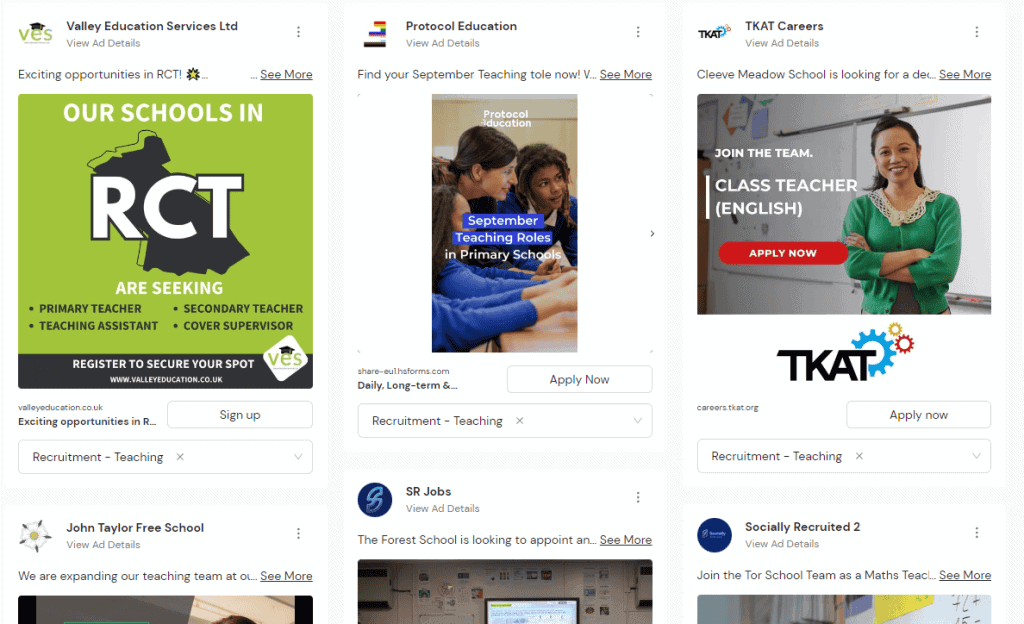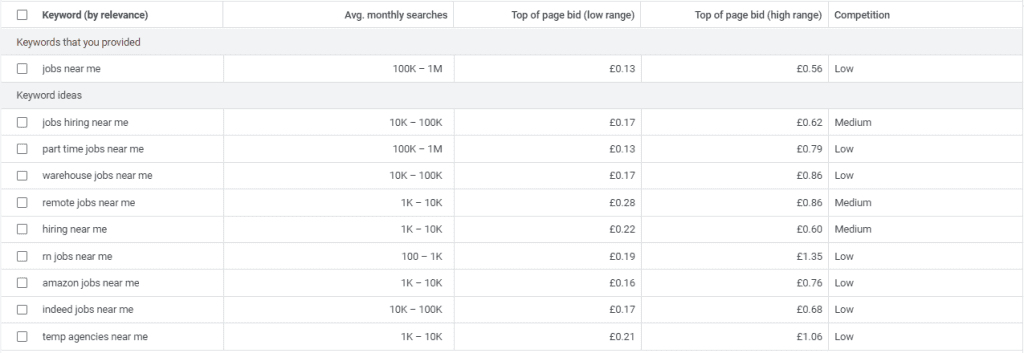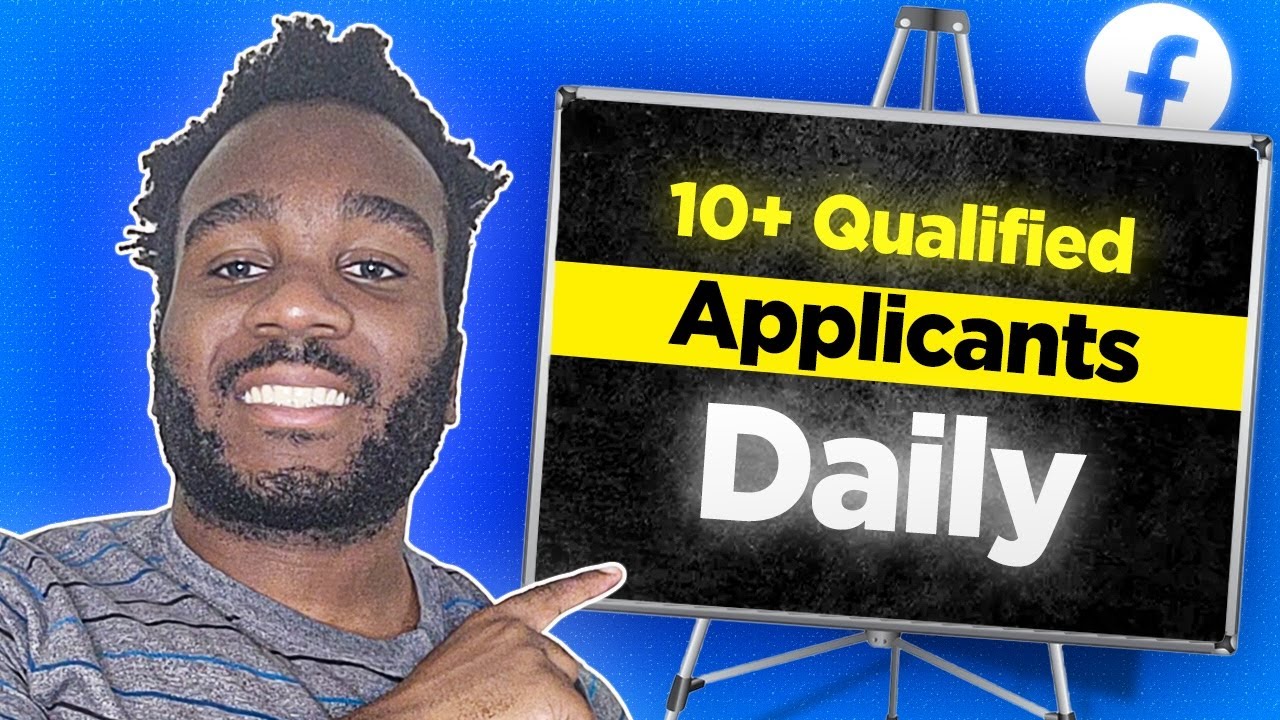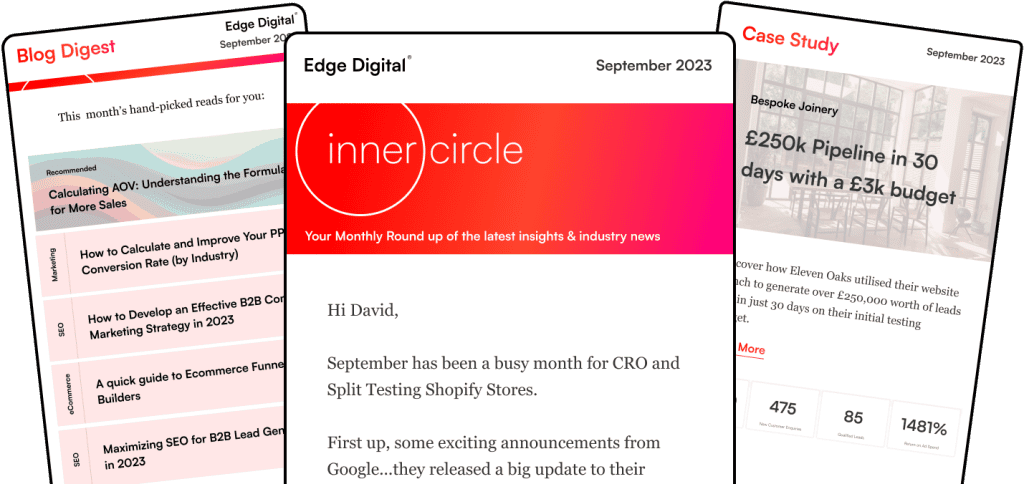Looking to boost your recruitment efforts? Pay-per-click (PPC) advertising can be a game-changer for finding top talent. PPC helps recruiters reach potential candidates quickly and effectively. Conducting keyword research is essential to identify the terms job seekers use, allowing you to create compelling ad content that attracts more applicants.
By using targeted ads, recruiters can attract qualified job seekers and fill positions faster.
PPC recruitment involves creating ads that appear when people search for job-related terms. These ads can be shown on search engines, job boards, and social media platforms. When someone clicks on your ad, they’re taken to your job listing or careers page. You only pay when someone clicks, making it a cost-effective way to find candidates. Using PPC recruitment has many benefits. It allows you to target specific skills, locations, and experience levels.
You can also adjust your campaigns in real-time based on performance. This means you can focus your budget on the most effective ads and reach the right candidates more efficiently.
Key Takeaways
PPC advertising helps recruiters target qualified candidates quickly and cost-effectively
Targeted ads on search engines, job boards, and social media can attract the right talent
Real-time campaign adjustments allow for efficient budget allocation and improved results
Key Principles of PPC Recruitment
PPC recruitment
PPC advertising is a powerful tool for candidate generation in the recruitment industry. We’ve identified several key principles to guide successful campaigns.
Firstly, targeting is crucial. We need to focus on keywords that job seekers use when searching for positions. This might include specific job titles, skills, or industry terms.
Ad copy must be compelling and clear to ensure that the PPC ad resonates with potential candidates.
We should highlight unique selling points of the positions or company to stand out. Using bullet points can make ads more scannable:
• Competitive salary
• Career growth opportunities
• Flexible working hours
Landing pages are equally important. They should match the ad content and provide an easy way for candidates to apply or learn more.
Budgeting and bid management require careful attention.
We must set daily budgets and adjust bids based on performance to maximise our return on investment.
Pay-per-click campaigns in recruitment also benefit from regular testing and optimisation.
We should experiment with different ad formats, headlines, and calls-to-action to improve results over time.
Tracking is essential. Utilizing analytics to identify and eliminate obstacles in the recruiting process can significantly enhance the candidate experience and improve overall efficiency.
We need to measure key metrics like click-through rates, conversion rates, and cost per application to assess campaign effectiveness.
Lastly, we mustn’t forget about mobile optimisation. Many job seekers use smartphones, so our ads and landing pages should be mobile-friendly.
Why is PPC recruitment the best form of online recruitment?
https://www.edgedigital.net/services/ppc/Using Pay-Per-Click (PPC) advertising for candidate recruitment, often referred to as PPC recruitment, is a highly effective strategy that businesses can leverage to attract top talent in a competitive job market. PPC recruitment campaigns allow companies to target specific demographics, job titles, and skill sets, ensuring that their job listings reach the most relevant candidates. By utilizing platforms like Google Ads and social media channels such as LinkedIn, Facebook, and Instagram, businesses can create tailored advertisements that appear in front of potential candidates actively searching for job opportunities. This targeted approach not only increases the visibility of job postings but also drives a higher quality of applicants, as the ads are displayed to individuals whose profiles match the desired criteria. Being visible in search engine results is crucial for attracting qualified candidates and maintaining a strong online presence.
The benefits of using PPC recruitment extend beyond targeted reach. One significant advantage is the ability to track and measure the performance of recruitment campaigns in real-time. Businesses can analyze key metrics such as click-through rates, cost-per-click, and conversion rates to assess the effectiveness of their ads and make data-driven adjustments. This level of insight enables continuous optimization of recruitment strategies, ensuring maximum return on investment. Additionally, PPC recruitment campaigns can be scaled up or down based on hiring needs and budget constraints, providing flexibility and control over recruitment efforts. Overall, PPC recruitment offers a cost-efficient, measurable, and highly targeted solution for businesses looking to attract and hire the best talent in their industry.
Understanding Your Target Audience
Knowing our audience is key for effective PPC recruitment campaigns. We’ll explore how to create detailed candidate profiles and use the right channels to reach them.
Creating Candidate Personas
To craft winning recruitment ads, we need to build clear candidate personas. These are fictional profiles that represent our ideal job seekers.

Targeting your ads specifically for the right candidates
We start by looking at our current top performers. What skills and traits do they share?
Next, we gather data on our target candidates:
Age range
Education level
Career stage
Skills and certifications
Professional goals
Preferred job benefits
We use this info to tailor our ad copy and targeting.

To get around Facebook’s restrictive interest targeting (or lack thereof) It’s best to give detailed descriptions to get feed the algorithm the best data to find candidates on your behalf.
For example, entry-level candidates might value training opportunities, while senior roles may focus on leadership challenges.
Leveraging Sector-Specific Channels
Different sectors have unique places where candidates hang out online. We need to identify these channels to reach the right people.
For tech roles, we might use:
https://github.com/GitHub for developer outreach
Stack Overflow for targeted ads
LinkedIn for IT professionals
Healthcare recruitment could focus on:
Medical journals’ websites
Professional association forums
Specialised job boards
By pinpointing our audience, we can create more focused campaigns. This approach helps us spend our budget wisely and attract better-fit candidates.
Developing an Effective PPC recruitment Campaign

Facebook Ads has been a great source of unique candidates beyond Job Boards and CV databases like Indeed, CV Library & Reed
Creating a successful PPC campaign for candidate generation requires careful planning and execution. We’ll explore key strategies to maximise your recruitment efforts and attract top talent.
Keyword Research and Selection
Choosing the right keywords is crucial for reaching potential candidates, and the first step is to conduct keyword research using tools like Google’s Keyword Planner.
We start by using Google’s Keyword Planner tool to identify relevant search terms.
Focus on industry-specific keywords and job titles that match your open positions.
Long-tail keywords often yield better results.
For example, “experienced software developer London” is more targeted than “developer jobs”.
We also consider location-based keywords to attract local talent.
It’s important to analyse search volume and competition.
High-volume keywords may be costly, so we balance them with niche terms.
We regularly review and update our keyword list to stay current with industry trends and job market changes.
Crafting Compelling Ad Copy
Our ad copy needs to grab attention and entice clicks to ensure that the PPC ad is effective.

We focus on creating clear, concise messages that highlight key benefits of the job openings. Using strong action verbs and including salary information can boost click-through rates.
We make sure to include:
Job title and location
Company name or key selling points
Unique perks or benefits
A strong call-to-action (CTA)
Iterating our ad copy is essential.
We test different versions to see what resonates best with our target audience. Using ad extensions, such as sitelinks or callouts, can provide extra information and improve ad performance.
Optimising Landing Pages for Conversion
The landing page is where candidates decide to apply or leave. We ensure our pages are:
Fast-loading and mobile-friendly
Clear and easy to navigate
Focused on a single job or job category
We include detailed job descriptions, company information, and an easy application process.
The page content should match the ad copy to maintain consistency and meet user expectations.
A prominent CTA button, like “Apply Now” or “Submit CV”, guides candidates to take action.
We also consider adding trust signals, such as employee testimonials or company awards, to boost credibility.
Budget Allocation and Bid Management
Effective budget management is key to PPC ad success.
We start by setting a daily budget based on our overall recruitment goals and adjust as needed.
Allocating more budget to high-performing keywords and campaigns helps maximise ROI.
Bid management requires ongoing attention.
We monitor cost-per-click (CPC) and adjust bids to maintain a competitive position without overspending.
Using automated bidding strategies can help optimise performance based on our goals.
We track important metrics like click-through rate, conversion rate, and cost per hire.
This data helps us refine our strategy and make informed decisions about where to invest our ad spend for the best results. Testing and analyzing various PPC ads ensures they resonate with potential clients and address industry-specific pain points.
Utilising Social Media for Candidate Generation
Social media platforms offer powerful tools for attracting top talent. We’ll explore strategies for Facebook, Instagram, LinkedIn, and Twitter to boost your recruitment efforts.
Facebook and Instagram Advertising
Facebook and Instagram ads help us reach a wide pool of potential candidates.
We target ads based on job titles, interests, and location. Visual content works well on these platforms.
We use eye-catching images and short videos to showcase company culture.
Custom audiences let us retarget website visitors or email lists. This keeps our job openings in front of interested candidates.
We also create lookalike audiences to find similar profiles.
Ad formats like carousel ads display multiple job openings at once. This increases the chances of matching candidates to suitable roles.
We track engagement metrics to refine our targeting and improve results over time.
Professional Networking on LinkedIn
LinkedIn is crucial for professional recruitment.
We optimise company pages with relevant keywords and regular updates. This improves our visibility in search results.
InMail campaigns allow direct outreach to passive candidates.
We personalise messages to highlight role-specific benefits.
LinkedIn Groups provide a platform to share industry insights and job openings.
LinkedIn’s recruitment tools offer advanced search filters.
We use these to find candidates with specific skills or experience. Sponsored content helps us reach a broader audience beyond our network.
Employee advocacy programmes encourage staff to share job postings. This expands our reach and lends authenticity to our recruitment efforts.
Engaging Candidates through Twitter
Twitter’s fast-paced nature suits quick job announcements.
We use relevant hashtags to increase visibility. Popular options include #JobSearch and industry-specific tags.
Twitter chats allow us to engage with potential candidates in real-time.
We host Q&A sessions about our company culture and career opportunities. This builds rapport and attracts passive job seekers.
We follow industry influencers and share their content. This helps us stay current and expand our network.
Promoted tweets boost important job postings to a targeted audience.
Twitter lists help us organise and engage with potential candidates.
We create public lists for different roles or industries. This showcases our commitment to staying connected in our field.
Maximising Job Board and Search Engine Visibility
PPC can boost your job postings’ visibility on job boards and search engines. This helps attract more qualified candidates and increases applications.
Integrating PPC with Job Board Postings

Boost your job postings online
We can use PPC to enhance our job board listings. Many job boards offer sponsored listings that appear at the top of search results. These paid spots give our jobs more eyeballs.
To make the most of this:
Choose relevant keywords for each job
Write clear, catchy job titles
Use eye-catching images where allowed
Set a daily budget to control costs
We should track clicks and applications to see which jobs perform best. This lets us adjust our spend for better results.
It’s key to test different ad copy and images. Small tweaks can lead to big jumps in applications.
Enhancing Visibility on Google Ads and Bing
Google Ads and Bing Ads are powerful tools for reaching job seekers. Ranking highly in search engine results is essential for attracting qualified candidates and maintaining a strong online presence. They put our jobs in front of people actively searching for work.

Traffic can be very cheap using PPC terms for your specific roles on Google Paid Search Ads. It’s another great way to drive volume of high-quality candidates for your job posts.
To boost visibility:
Target job-related keywords
Use ad extensions to show more info
Create landing pages for each job
Set up conversion tracking
We must write ads that stand out. Include the job title, location, and a key perk. This helps attract the right candidates.
It’s smart to bid on our company name too. This ensures we show up when people search for us directly.
Mobile optimisation is crucial. Many job seekers use phones, so our ads and landing pages must look good on small screens.
Analysing and Refining Recruitment PPC Strategies
Optimising PPC campaigns for recruitment requires constant review and adjustment. We’ll explore key methods to enhance our strategies and attract top talent efficiently.

optimizing your PPC recruitment ads will provide better candidates for the roles
A/B Testing for Campaign Optimisation
A/B testing is crucial for improving our recruitment PPC efforts. We start by creating two versions of an ad, changing one element like the headline or image. Then we run both ads and compare their performance.
This method helps us understand what resonates with job seekers. We might test different job titles or highlight various perks. The goal is to find what drives more clicks and applications.
It’s important to test one element at a time. This way, we know exactly what caused any changes in performance. We can then apply these insights to future campaigns, boosting our recruitment marketing efforts.
Performance Review and Adjustments
Regular performance reviews are vital for PPC success. Analyzing these metrics helps identify and eliminate obstacles in the recruiting process, thereby improving overall efficiency. We look at key metrics like click-through rates, cost per click, and application rates. This data shows us what’s working and what needs improvement.
If certain keywords aren’t performing well, we might pause or remove them. We also adjust bids based on performance. High-performing keywords might get more budget, while we reduce spend on less effective ones.
We keep an eye on our quality candidates as well. If we’re getting lots of clicks but few qualified applicants, we might need to refine our targeting or ad copy.
Leveraging Data for Recruitment Intelligence
PPC campaigns generate valuable data about job seekers. We use this information to gain insights into the job market and candidate preferences.
By analysing search terms, we can spot trending skills or job titles. This helps us tailor our job descriptions and employer brand messaging.
We also use PPC data to inform our wider recruitment strategy. If certain roles are hard to fill, we might need to adjust our offers or look in new locations.
This data can even guide our search engine optimization efforts. Popular search terms from PPC can be used to optimise our career pages and job listings.
Building a Strong Recruitment Brand through PPC
PPC campaigns can help recruitment agencies boost their brand and attract top talent. We’ll explore how to showcase your employer brand and company culture through targeted ads.
Emphasising Your Employer Brand in Advertisements
PPC ads are a great way to build brand awareness for your recruitment business. We recommend crafting ads that highlight your unique selling points as an employer. Use clear, compelling copy that speaks to job seekers’ needs.
Focus on what makes your agency stand out. Do you offer flexible work options? Mention it in your ads. Have you won industry awards? Feature them prominently.
Tailor your ads to different industries and job roles. A software developer will have different priorities than a sales executive. Address their specific pain points in your ad copy.
Don’t forget to link ads to tailored landing pages. These should match the tone and message of your ads, providing a seamless experience for candidates.
Cultivating an Attractive Company Culture
Your PPC ads can also showcase your company culture to potential candidates. We suggest highlighting aspects of your work environment that make your agency a great place to work.
Share snippets of team-building activities or volunteer work. If you offer unique perks or benefits, make sure to mention them in your ads.
Consider creating video ads that give a glimpse into your office life. Short clips of team meetings or casual Friday events can help candidates picture themselves working with you.
Employee testimonials can be powerful in PPC ads. Use quotes from happy staff members to build trust and credibility with potential applicants.
Remember to keep your messaging consistent across all platforms. Your PPC ads should align with your website, social media, and other marketing materials to reinforce your employer brand.
Expanding Reach with Remarketing and Display Ads
PPC remarketing and display ads can greatly boost candidate recruitment efforts. These tools help reach more potential applicants and keep your company top-of-mind.
Targeting Warm Leads with Remarketing
PPC remarketing lets us show ads to people who’ve already visited our job listings or careers page. We can create custom audience lists based on specific actions, like viewing a particular job role or starting an application.
To set up remarketing:
Install a tracking pixel on our website
Create audience lists in our ad platform
Design targeted ads for each list
Set bids and budgets
Remarketing keeps our brand visible to interested candidates. It’s great for nudging those who might need a gentle push to apply.
We can also use remarketing to highlight different aspects of our company culture or benefits package. This helps address any concerns potential applicants might have.
Creating Visual Impact with Display Ads
Display ads on the Google Display Network let us reach candidates while they browse other websites. These visual ads can grab attention and spark interest in our job openings.
Key tips for effective display ads:
Use eye-catching images or graphics
Include clear, concise messaging
Highlight unique selling points of the role
Add a strong call-to-action
We can target display ads based on interests, job titles, or websites related to our industry. This helps ensure we’re reaching the right audience.
Display ads work well for building brand awareness and attracting passive candidates who might not be actively job hunting. They can complement our other recruitment efforts nicely.
Leveraging Technologies for Enhanced PPC Efficiency
Technology has revolutionised pay-per-click advertising. We’ll explore how automation and tracking tools can boost your recruitment campaigns.
Automation in Pay-Per-Click Advertising
Applicant Tracking Systems have transformed recruitment, and PPC is no exception. Automation tools can manage bids, adjust budgets, and optimise ad placement. This frees up time for recruiters to focus on candidate engagement.
We can use automated rules to pause underperforming ads or increase bids for high-converting keywords. Machine learning algorithms can predict which ads are likely to perform well, allowing us to allocate resources more effectively.
Automated A/B testing lets us quickly identify the most effective ad copy and landing pages. This constant optimisation ensures our recruitment ads stay relevant and engaging.
Utilising Pixels for Advanced Tracking
Pixels are small code snippets that track user behaviour on our website. By placing these on key pages, we gain valuable insights into candidate actions.
We can track which job ads lead to applications, interviews, and hires. This data helps us refine our PPC strategy, focusing on the most effective channels and keywords.
Retargeting pixels allow us to show tailored ads to candidates who’ve visited our site but haven’t applied. This keeps our roles top-of-mind and can significantly boost conversion rates.
By combining pixel data with AI-powered recruitment tools, we can create highly targeted campaigns that reach the right candidates at the right time.
Integration with Other Recruitment Channels
PPC works best when combined with other recruitment methods. A multi-channel approach boosts candidate reach and quality. Let’s explore how to integrate PPC with organic SEO and networking.
Combining PPC with Organic SEO Strategies
PPC and SEO work well together for recruitment. We use PPC to target specific job keywords quickly. At the same time, we build organic SEO for long-term visibility. This dual approach helps us find high-quality candidates.
PPC ads give instant results. They appear at the top of search pages for chosen terms. SEO takes longer but provides lasting benefits. We optimise job listings and career pages for relevant keywords.
Together, PPC and SEO cover more search results. This increases our chances of attracting top talent. We also use insights from PPC to improve our SEO strategy. Popular search terms in PPC can guide our organic content creation.
Cross-Channel Synergies with Referrals and Networking
PPC complements referrals and networking in recruitment. We use PPC to reach new candidates while tapping into existing networks. This creates a powerful mix of broad reach and personal connections.
PPC ads can promote referral programmes. We target ads to potential referrers, explaining the benefits. This boosts participation in our referral scheme. At the same time, we use networking to spread the word about open positions.
Social media platforms offer unique PPC options. We can target ads to specific professional groups or alumni networks. This combines the power of PPC with the trust of personal connections.
We also use PPC to support in-person networking events. Targeted ads can promote recruitment fairs or industry meetups. This drives attendance and helps us connect with more potential candidates.
Frequently Asked Questions
Pay-per-click advertising is a powerful tool for recruitment. We’ll explore how it works, its benefits, key metrics, and strategies for targeting candidates. We’ll also look at common challenges and ways to integrate PPC with other sourcing methods.
How does pay-per-click advertising work within talent acquisition?
PPC in recruitment involves creating ads for job openings and paying when someone clicks on them. We place these ads on search engines and job boards.
They appear when job seekers search for relevant terms. The ads link to job descriptions or application pages.
This helps us reach active job seekers quickly. We can adjust our campaigns in real-time based on performance.
What are the benefits of using PPC for sourcing candidates?
PPC offers several advantages for recruiting leads generation. It allows us to target specific skills and job titles.
We can reach candidates faster than traditional methods. PPC also provides measurable results.
We can track how many people view and click our ads. This helps us calculate the cost per applicant and adjust our strategy as needed.
Which metrics are crucial for measuring the success of a PPC campaign in recruitment?
Key metrics include click-through rate (CTR), cost per click (CPC), and conversion rate.
CTR shows how many people click our ads. Meanwhile, CPC tells us how much we’re spending on each click.
Conversion rate measures how many clicks lead to applications. We also track cost per hire and time to fill positions.
These help us assess candidates and the overall success of our campaigns.
Can pay-per-click strategies target passive candidates effectively?
Yes, PPC can reach passive candidates. We use targeted ads on social media platforms like LinkedIn.
These ads appear in users’ feeds, even if they’re not actively job hunting. We craft compelling ad copy to spark interest.
Our ads highlight unique job features or company benefits. This approach can attract passive candidates who might not visit job boards.
What are the common challenges faced when managing PPC campaigns for recruitment?
One challenge is standing out in a crowded job market. We need to create ads that grab attention and convey our job’s unique value.
Budget management is another issue. We must balance spending across different roles and platforms. Keeping up with changing PPC trends can be tough.
Platforms often update their algorithms and features. We need to stay informed and adapt our strategies regularly.
How can PPC be integrated with other candidate generation channels?
We combine PPC with other methods for a well-rounded approach. Our PPC ads can complement job board postings and social media efforts.
We might use PPC to drive traffic to our careers page or LinkedIn profile.
Email marketing can work alongside PPC. We might retarget candidates who clicked our ads but didn’t apply.
This multi-channel approach helps us reach more candidates and reinforce our message




